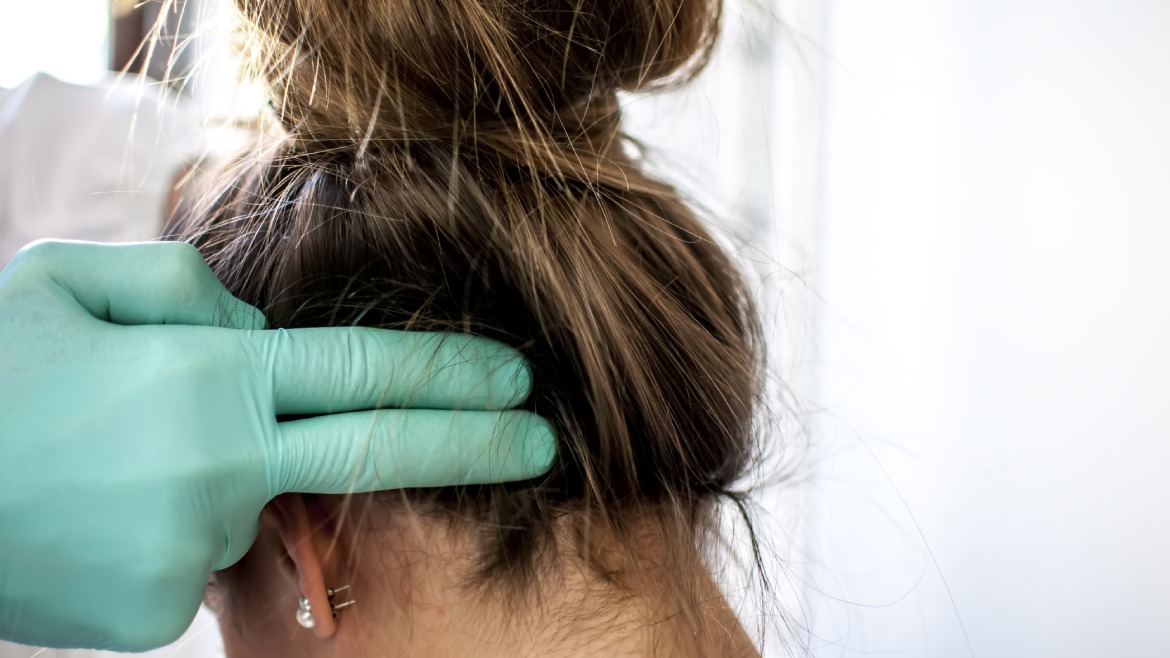Treatment for Hair Loss, Dandruff & Hair Growth Treatments
The most common skin conditions that cause scalp and hair problems are Alopecia Areata, Hair Loss, Scalp Psoriasis, Dandruff, and Seborrheic Dermatitis.
Alopecia Areata is a condition which causes hair to fall out in round patches. The hair can fall out on the scalp as well as other parts of the body. Alopecia Totalis is a condition where you lose all hair on the scalp. This is not a nerve-related issue. It is an auto-immune disease that occurs because the immune system attacks the hair follicles causing hair loss. Hair transplantation and hair growth treatments are the most effective treatments available for this condition.
Hair Loss also called as Alopecia is a condition where you experience gradual thinning of the hair, bald patches or complete baldness. Millions of people experience hair loss. Some undergo hair loss treatment, hair fall treatments and some go for hair growth treatments. At The Skin Clinic, you are evaluated for medical causes of hair loss and appropriate treatment is started.
Psoriasiscan appear anywhere on the skin. When it appears on the scalp, it is often called scalp psoriasis. Sometimes it is a small patch that develops and is easily hidden with hair, however, in some conditions, psoriasis covers the entire scalp causing reddish patches on the scalp, dandruff-like flaking, dry scalp, itching, bleeding, and burning sensation or soreness as well as temporary hair loss. These symptoms can come and go. Some people may have one mild flare, while others may have severe flare-ups that can range from mild to serious. Psoriasis treatment involves understanding the severity of the flare-ups. If you are experiencing these conditions, visit us right away.
Dandruff is a common scalp condition where small flakes of dry skin fall off the scalp. One of the main causes of this is the oil produced by the scalp causes the skin cells to clump together and appear as white flakes. It can also be caused by a number of other factors including dry skin or skin conditions such as seborrheic dermatitis or eczema. Effective dandruff treatments are available to curb this condition.
Seborrheic Dermatitisis an itchy rash on your scalp that has flaky scales. It is a common skin condition that looks similar to psoriasis, eczema or an allergic reaction. It can appear on your body as well as scalp. Newborns and adults in the age group of 30-60 are more likely to get affected with this skin condition.
Treatment for Hair Loss & Scalp Conditions:
The patient is evaluated for medical causes of hair loss and appropriate treatment is started. But if on diagnosis the hair loss has progressed to the stage that it requires surgical or procedural intervention, hair transplantation and hair growth treatments are offered.
Plant based growth factor
First-in-line hair growth and anti-hair loss formulation, Plant based growth factors is a unique mixture of hair growth factors developed from the existing biomimetic proteins capable of causing hair development and growth. Application of the product reactivates the hair follicles from their dormant phase resulting in natural-looking hair.
The therapy puts an end to hair fall and increases the thickness and density of your hair, resulting in healthy hair growth and an enriched scalp.
- How is it done?
It is a non-surgical hair growth treatment administered through micro-injections into the scalp. It contains a unique blend of growth factors that stimulate hair follicles.
- Why is it done?
It is done to combat hair loss, promote hair regrowth, and improve hair thickness. It’s suitable for various types of hair loss, including androgenic alopecia.
- How frequently is it done?
Treatment sessions are typically scheduled at intervals of 4-6 weeks. The number of sessions needed depends on individual factors.
- What are the results expected?
Patients can expect gradual hair regrowth, increased hair thickness, and reduced hair shedding. Results vary, but many see improvement after a few sessions.
- What are the side effects?
It is generally safe, with minimal side effects like mild swelling or redness at injection sites. Serious side effects are rare.
- What home care should be followed?
Maintain a healthy diet with essential nutrients for hair growth.
Avoid excessive heat styling and use gentle hair care products.
Follow post-treatment care instructions provided by your dermatologist.
- How is it different from PRP?
It is a type of targeted therapy which has hair growth specific factors in the right concentration
Proved to be 3 times more effective than PRP, Delivers faster results than Stem Cell & PRP with Zero side effects. It is Cost-effective, 1/10th of the cost of hair transplant .Easy and quick to use. Gives predictable results each time
GFC
GFC is a relatively new procedure introduced to help people suffering from hair loss and for skin rejuvenation. It’s a more advanced version of PRP that offers greater results.
1) What is GFC for Hair?
GFC, or Growth Factor Concentrate, is a cutting-edge treatment for hair restoration. It harnesses the power of your body’s natural growth factors to stimulate hair follicles and promote hair growth.
2) How is it Done?
GFC for hair involves a simple and minimally invasive procedure. A small amount of your blood is drawn, similar to a routine blood test. The blood is then processed to isolate growth factors. These growth factors are then injected into the scalp, where they stimulate hair follicles.
3) How Frequently is it Done?
The frequency of GFC treatments can vary depending on individual needs and the severity of hair loss. Typically, an initial series of treatments is recommended, followed by maintenance sessions every 3 to 6 months.
4) What are the Expected Results?
GFC promotes natural hair growth, leading to thicker, stronger, and healthier hair. It can help reduce hair thinning and improve overall hair density. Results may vary, but many patients report significant improvements.
5) What are the Side Effects?
GFC for hair is generally safe with minimal side effects. Some patients may experience mild discomfort, swelling, or redness at the injection site, which usually subsides within a few days.
6) Precautions Post-Procedure
After the procedure, it’s essential to follow these precautions:
- Avoid touching or scratching the treated area.
- Avoid strenuous physical activity for a day or two.
- Use mild, non-alcoholic shampoos and avoid hair treatments for a few days.
- Protect your scalp from excessive sun exposure.
7) Advantages Over PRP (Platelet-Rich Plasma)
- GFC offers several advantages over PRP:
- GFC contains a higher concentration of growth factors, potentially leading to better results.
- It requires fewer treatment sessions for maintenance.
- The procedure is quicker and more comfortable, often without the need for numbing cream.
FAQ's Scalp & Hair Problems
What causes hair loss?
The most common cause of hair loss for both men and women is heredity. Either or both parents can pass on the gene that causes hair loss. Other reasons for hair loss may be underlying medical or hormonal problems, medications, excessive weight loss, chemotherapy, or radiation.
Also, traumatic injuries, scarring scalp conditions, or burns to the scalp can cause permanent hair loss.
How is the cause of hair loss determined?
A dermatologist can help you identify the cause of your hair loss. The single most important element in determining hair loss is the doctor’s experience. First, he or she will start by asking a round of questions to better understand your condition. If the cause of hair loss remains unclear, he/she can order or perform tests which may include hair pull test, scalp biopsy, and blood tests.


